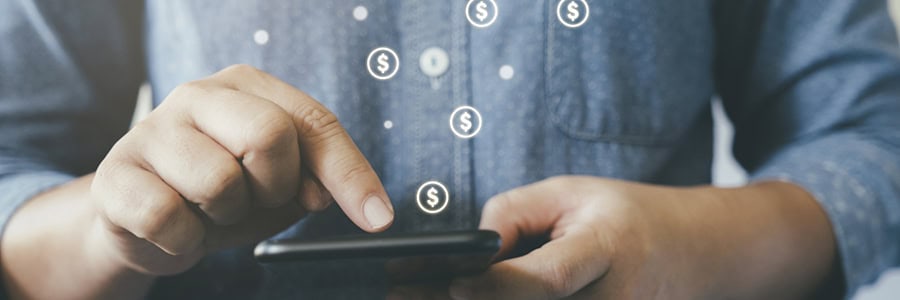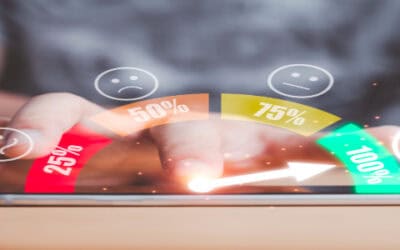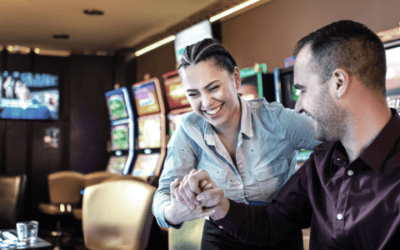

Most Mobile Apps Don’t Make Money. Here’s Why.
Most brands believe their mobile app is making them money, when in reality, it probably is not. After all, when customers use a brand’s mobile app to complete a transaction, it doesn’t necessarily mean the mobile app is responsible for the transaction.
It’s the logical fallacy, “Correlation implies causation,” in action. Most purchases made via mobile apps would have occurred with or without the mobile app.
The difference between mobile apps facilitating transactions and mobile apps making money lies in planned versus unplanned purchases. Understanding and navigating that difference reveals the true value of your brand’s mobile app.
Mobile Apps in the Quick Service Restaurant Industry
By examining how customers use mobile apps in the quick service restaurant (QSR) industry, it’s easy to see how mobile apps can make money. Most QSR mobile apps allow customers to do all the necessary utilitarian tasks around ordering food—view menus, place an order, schedule pick up, and monitor reward points. Customers may choose to order via the mobile app instead of online or in person. That doesn’t mean the mobile app made the restaurant any money; that order was going to happen with or without the mobile app.
Unplanned mobile app purchases, on the other hand, do allow mobile apps to make money. Say you’re a monthly customer at Restaurant ABC, but you haven’t ordered from them in three or four weeks. With LighthousePE, Restaurant ABC can send a hyper-personalized push notification at 3 p.m. on a Tuesday afternoon, encouraging you to enjoy an extra 10% off your dinner order tonight. That’s an unplanned purchase generated by your mobile app.
Best Practices for Casino Mobile Apps
LighthousePE can also help brands use their mobile apps to make money in the casino industry by intercepting their players when they are about to visit a competitor’s casino. Using what we call a Turnaround Signal, LighthousePE encourages players to change their plans in the moment. The right incentive, at the right time, sent to the right person can generate unplanned visits, and that’s what’s possible through your brand’s mobile app with the help of LighthousePE.
Evergreen Gaming Corporation, located in Washington state, used LighthousePE to do just that. They used LighthousePE’s behavior analysis and geofencing capabilities to send an automated push notification to any of their players who entered their competitors’ parking lots. By setting frequency limitations on how often each customer received the offer, Evergreen found the perfect balance between ensuring their customers weren’t overwhelmed with notifications and achieving incredibly strong conversion rates. During a three-week campaign, they saw a 20% redemption rate on 395 turnaround notifications, translating to a 607% ROI.
Mobile Apps in the Wellness and Beauty Industry
In the personal services industry, there’s an opportunity for brands to use LighthousePE to make money with their mobile app by filling unused appointment times. White space on the calendar is a problem for spas and salons; when open appointment times go unused, there’s no recouping the lost time or revenue.
LighthousePE can capture unplanned visits by analyzing customers’ behavioral data to identify customers who have lapsed in visit time, who typically get a certain kind of service, and who are nearby. By coordinating that information, spas can send personalized push notifications through their mobile app to invite the right customers to take advantage of open appointment times—and in turn, capture unplanned revenue.
Typically, the unplanned appointment times fill up within 72 hours. That’s the kind of success we saw with personal services business Ella Bliss Beauty Bar. Using LighthousePE, Ella Bliss sent their clients highly personalized mobile app messages designed to generate bookings for available appointment slots. They leveraged LighthousePE’s geotargeting capabilities to target notifications based on their clients’ proximity to each store. They also took advantage of the integration with their scheduling platform to create special offers for each client based on their service history and the length of time since their last visit. During a one-week campaign, Ella Bliss’s mobile app made significant revenue as they booked enough appointments to generate an ROI of 1,200% with LighthousePE.
Start Cashing in with Your Brand’s Mobile App
Most brands severely underrate the value of their mobile app by viewing their mobile app as a transactional tool, but the greater value is in the mobile app’s ability to serve as a channel for one-to-one highly personalized communication. That’s how your brand’s mobile app can actually make money.
If you’d like to learn more, contact me at roger.hurni@lighthousepe.ai or book a time to speak with me.
You may also be interested in
Navigating Economic Shifts Becomes Easier When Businesses Rely on Real-Time Customer Behavior
In today’s economy, where uncertainty is the only constant, agility isn’t just important — it’s essential. But true agility doesn’t happen by accident. It’s built on understanding how people behave in real time, and acting on that insight faster and smarter than the...
How Consumer Behavior is Changing with AI-Driven Predictive Analytics
Predictive analytics is not a new concept; it has been used in various forms for decades to forecast outcomes based on historical data. However, with the advent of artificial intelligence (AI), predictive analytics capabilities have been exponentially enhanced....
AI: Artificial Intelligence or Artificial Interpretation?
AI is not really Artificial Intelligence—it’s more like Artificial Interpretation. Think about it: AI is not sui generis. It doesn’t make up information. Instead, AI finds correlations in seemingly unrelated information and uses those correlations to interpret...
How the Right AI Can Expand the Casino Player Experience
Most casinos aren’t fully embracing AI, and, in turn, they’re missing opportunities to take care of their existing players and outpace their competition. Unrealized potential awaits—from enjoying the benefits of a true attribution channel to delighting players with...





